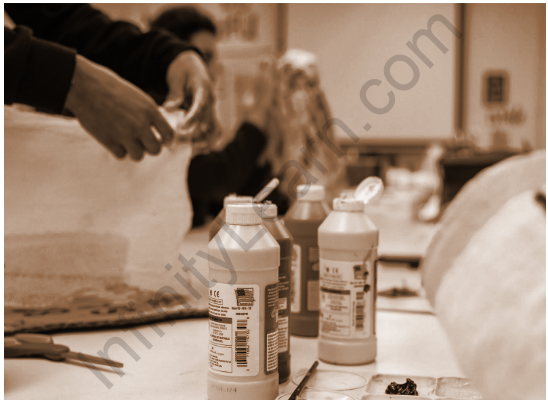Table of Contents

Students connect more deeply with the material and appreciate the classroom experience more when they are permitted to apply the cognitive information they acquire through meaningful activities. Experiential learning options are often kept for higher-level classes that involve service learning and internships that lead to high-impact experiences, according to a deeper look at when they are used. When we look at the definition of experiential learning, however, it is clear that the principle can be applied to any situation.
What is Experiential Learning?
In education, training, facilitation, coaching, and organizational development, the experiential learning approach is a well-known model. Experiential learning is an immersive, participant-centred, active learning strategy that engages learners of all ages, backgrounds, and levels of expertise in an emotionally engaging learning experience. Experiential Learning is a part of the larger area of Experiential Education, which is a multimodal approach to learning based on teaching philosophy.
Experiential learning focuses on producing experiences that allow learners to apply their knowledge and abilities to real-world situations in order to improve their understanding and gain proficiency in skills and behaviours.
What are the top five benefits of experiential learning?
- The knowledge that can be applied right away
Learners can use what they’ve learned in class to tackle real-world problems through experiential learning. Learners can experiment and change their practices to attain the greatest outcomes by testing their comprehension of underlying ideas, processes, and procedures.
- Real-time coaching and feedback are available.
Practice and focused coaching based on what is observed during practice are required to achieve expertise. A debriefing session should be included in every experiential learning engagement when learners receive feedback and coaching from specialists and fellow team members.
- Teamwork and communication skills are encouraged.
The majority of medical errors are caused by a breakdown in communication and coordination. We should learn and practise in groups because patient care is given by a team. The same experience cannot be obtained by reading a book or listening to a lecture. You’ve got to do it!
- Habits of reflective practise development
The person who can self-monitor the success of his strategy, predict results, and build contingency plans is the gold standard in education. These persons are frequently referred to as “experts.” They are experts because they have more experience and have received more coaching than a non-expert, as well as having incorporated specific thought disciplines into daily practice. Experiential learning aids in the transition from novice to expert.
- The accomplishments are self-evident.
Because of the feedback loop produced by problem-solving, feedback, and practising again, learners can improve and know they have improved in as little as an hour. In a traditional classroom setting, students frequently do not know if they are on the right track until they take an exam and receive a grade.
What are the Principles of Experiential Learning?
The encounter is based on previous information and experiences and is a direct experience with focused reflection. It necessitates active participation in the formation of meaning, as well as collaboration and the interchange of ideas and opinions among participants.
The learner actively reflects on the event, whether through personal reflection, group discussion, questioning, processing, or journaling. They may take part in group processing and conversation, which may include debriefing and reflective questions provided by a facilitator who encourages the group to build personal meaning and apply what they’ve learned to new situations.
What is the nature of experiential learning?
how each individual navigates the learning cycle in their own unique way Because our learning preferences are influenced by a variety of factors such as our personalities, educational levels, careers, cultures, and more, the Kolb Learning Style Inventory (LINK) shows that there are nine different ways to navigate the learning cycle.
- Experiencing. Because you derive significance from your experiences and relationships, you thrive on collaboration and emotional connection with people.
- Imagining. You get the most out of observing and thinking about situations, and you have a sympathetic and creative mentality when you work.
- Reflecting. You are slow and cautious, preferring to study others and absorb information from several sources before taking action.
- Analyzing. You like to think about your experiences in a systematic and critical way, then make plans to minimize mistakes and test assumptions.
- Thinking. You prefer to structure arguments with logic and reasoning, and you appreciate making decisions and communicating your thoughts with quantitative methods.
- Deciding. You’re a good decision-maker who likes to create concrete goals and work toward them by planning and reviewing them as you go
- Acting. You are goal-oriented and use assertiveness and commitment to achieve your objectives in a short amount of time.
- Initiating. You have an adventurous spirit and enjoy thinking on your feet and taking risks in order to explore new possibilities.
- Balancing. You analyze the advantages and disadvantages of any circumstance, identifying gaps, bridging interpersonal differences, and assisting your team in fast adapting.
FAQ’s
Q. What are the advantages of experiential learning?
Ans: Students are given tasks and exercises based on real-life circumstances or primary research, which involves them in reflective problem-solving with various alternative routes of inquiry.
Q. What makes experiential learning so powerful?
Ans: Experiential learning fosters deeper comprehension, critical thinking, reflective judgment, and knowledge application in complicated or ambiguous circumstances, as well as the development of skills that enable students to engage effectively in problem-solving, critical thinking, and lifelong learning.
Q. What role does experiential learning play in development?
Ans: The process of learning by experience is known as experiential learning. Experiential learning allows children and teenagers to pursue their own interests and solve difficulties as they arise. It also allows kids to face failure and learn how to overcome obstacles.
Q. What are the Experiential Learning Principles?
Ans: The student gets a real authentic experience with real consequences in which the learner voluntarily participates in investigating, exploring, and engaging with a real-world event that can lead to any outcome. The interaction is hands-on and involves “feeling and doing.” The adventure can be planned or utterly unplanned. There is very little if any, teaching involved, and the experience may incorporate both solo and group activities.




